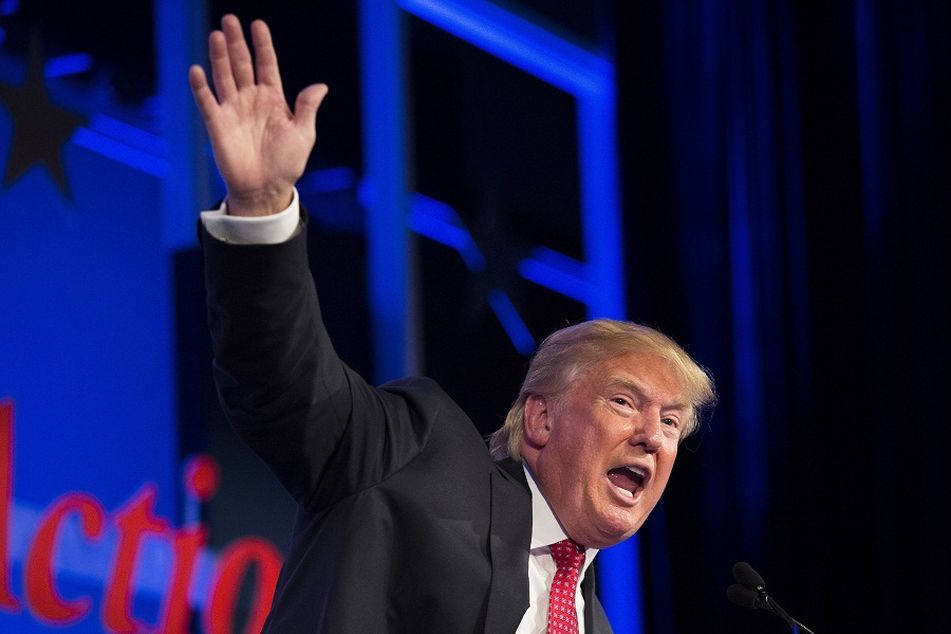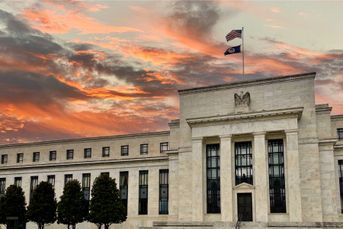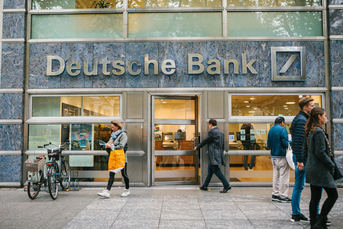Donald Trump in Detroit speech offers revised tax plan and curb on regulations
 Donald Trump
Donald Trump
The Republican nominee is trying to reset his presidential campaign after a string of missteps.
Donald Trump on Monday sought to cast Hillary Clinton’s economic program as an ineffective relic, and to reset his own presidential campaign after a string of missteps.
“We now begin a great national conversation about economic renewal for America,” Mr. Trump said in a speech to the Detroit Economic Club, urging a return to his “America-first” governing vision.
“The city of Detroit is the living, breathing example of my opponent’s failed economic agenda,” Mr. Trump said.
The nominee proposed a temporary moratorium on new agency regulations. He also proposed making U.S. families’ child-care costs tax-deductible, which his daughter Ivanka promised last month in a prime-time speech at the Republican National Convention.
Protesters repeatedly interrupted Mr. Trump, who acknowledged them more calmly than he sometimes has at campaign rallies. “This is all very well planned out,” he said.
Mr. Trump announced major changes to his plan to slash individual income-tax rates, taking the top rate to 33%. While that’s higher than the 25% top rate Mr. Trump had initially proposed, it still represents a cut from the current top rate of 39.6%.
Mr. Trump initially proposed three tax rates — down from the current seven — of 10%, 20%, and 25%. His new rates — 12%, 25%, and 33% — mirror those proposed by House Republicans under Speaker Paul Ryan in June. Mr. Trump pledged to work with Mr. Ryan and others on the tax plan, but added that “we will develop our own set of policies and assumptions” and will disagree in some areas.
“For many American workers, their tax rate will be zero,” he said.
Those changes will reduce the estimated cost of Trump’s tax plan, which some analysts had set at roughly $10 trillion over 10 years. But the child-care proposal also represented a new expense. That measure would cost roughly $20 billion a year, said economist Stephen Moore, who’s advising Trump’s campaign.
“It’s not a big cost,” he said.
For businesses, Mr. Trump’s tax plan would slash the rate on corporate and business income to 15%, down from a current top corporate tax rate of 35%. Members of partnerships, limited liability companies, and other so-called “pass-throughs,” who currently pay regular individual tax rates on their business income, would see a significant cut under the plan.
Mr. Trump would also end corporations’ ability to defer paying taxes on their overseas income, though he’d subject that income to a still-lower tax rate of 10%. That lower rate would give companies incentive to return more than $2 trillion in foreign earnings to the U.S., Mr. Trump said, and would “end job-killing corporate inversions” by removing an incentive for them. In inversions, U.S. companies shift their tax addresses offshore by merging with foreign companies.
Mr. Trump also said during the speech that the rich would pay their “fair share” — language more commonly heard from Democrats — but added that no one would “pay so much that it destroys jobs” or undermines U.S. competitiveness.
“No one will gain more from these proposals than low-and-middle income Americans,” he said.
Still, Mr. Trump’s proposals to cut individual tax rates and the tax rate on income from partnerships, along with eliminating the estate tax, mean the wealthy would pay less under his plan, said Kyle Pomerleau, director of federal projects at the conservative Tax Foundation.
“His rhetoric is not lining up with his proposals,” Mr. Pomerleau said.
Mr. Trump cited his intent to eliminate some “special-interest loopholes” that have benefited Wall Street investors. He mentioned his call for ending the special tax treatment of carried interest, the portion of investment gains paid to fund managers.
Some analysts have said that Mr. Trump’s overall plan might mean lower taxes for members of partnerships who receive carried interest. Carried interest is currently taxed as capital gains, meaning the income qualifies for a tax rate as low as 23.8%. Under Mr. Trump’s plan to cut business taxes, though, members of partnerships who get carried interest might be taxed at a 15% rate. Many investment firms are organized as partnerships.
The speech, which Mr. Trump read off a teleprompter, was a product of consultation with his economic advisers, led by policy director Stephen Miller.
Mr. Trump accused Ms. Clinton of admitting she wants to raise middle-class taxes, which her campaign disputes. In a line that is difficult to hear clearly on tape, Ms. Clinton said at a recent event that “we aren’t” going to raise middle-class taxes, the nonpartisan fact-checker PolitiFact said.
“Recently, at a campaign event, Hillary Clinton short-circuited again—to use a now-famous term–when she accidentally told the truth and said she wanted to raise taxes on the middle class,” Mr. Trump said, referring to the “short-circuited” phrase Ms. Clinton used when answering a journalist’s question about her private e-mail server last week.
“We need to stop believing in politicians and start believing in our great country,” Mr. Trump said.
Mr. Trump painted a picture of Detroit “roaring back.”
“We will put American steel into the spine of this nation,” he said. “Americanism, not globalism, will be our new credo.”
Mr. Trump reiterated his opposition to the Trans-Pacific Partnership trade deal and his desire to renegotiate Nafta, or walk away from the agreement if necessary. Mr. Trump said that he’s not interested in isolation, but in “great and well-crafted trade deals,” and that voting for Ms. Clinton would amount to voting for TPP, even though the Democrat now opposes the deal.
Mr. Trump also seeks to reverse much of the Obama administration’s climate-change and energy agenda by defending the coal industry, rescinding environmental rules, and asking TransCanada to renew its Keystone pipeline permit application if he’s elected.
After Trump said Aug. 2 he would double Ms. Clinton’s infrastructure spending plan in a major government expansion, aides said he will speak later this summer about his plan for the nation’s roadways.
Learn more about reprints and licensing for this article.








